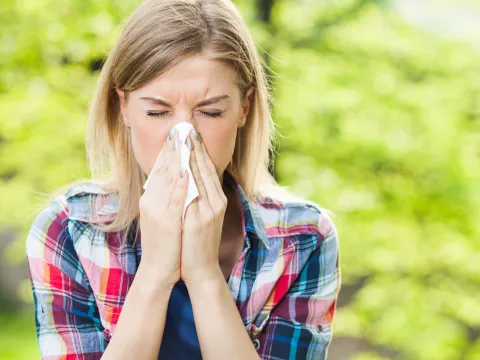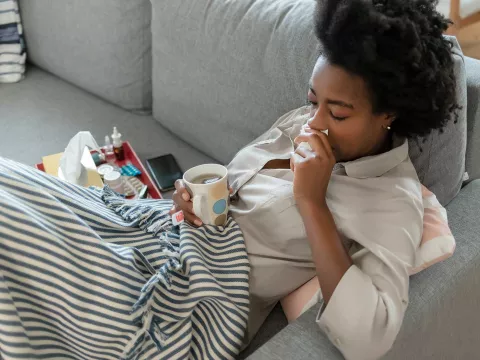- AdventHealth Centra Care

With so many viruses going around, it's important to know how to protect yourself and your family. AdventHealth Centra Care's Senior Medical Director, Dr. Tim Hendrix, says that keeping hands clean is one of the most important steps we can take to avoid getting sick and spreading germs to others. Many diseases and conditions are spread by not washing hands with soap and clean, running water. The Center for Disease Control (CDC) recommends that you clean your hands in a specific way to avoid getting sick and spreading germs to others.
5 Steps to Proper Hand-washing
- Wet your hands with clean, running water (warm or cold), turn off the tap, and then apply soap. Why? Using soap to wash your hands is more effective than just water because the soap removes the microbes from skin, and people tend to scrub their hands more thoroughly when using soap.
- Lather your hands with soap. Be sure to cover the backs of your hands, between your fingers, and under your nails. Why? Lathering and scrubbing hands creates friction, which helps lift dirt, grease, and microbes from skin. Microbes are present on all surfaces of the hand.
- Scrub your hands for at least 20 seconds. Need a timer? Hum the "Happy Birthday" song from beginning to end twice. Why? Evidence suggests that washing hands for about 15-30 seconds removes more germs from hands than washing for shorter periods.
- Rinse your hands well under clean, running water. Why? Because your hands could become recontaminated if put them back in a sink of standing water. Rinsing the soap away also minimizes skin irritation.
- Dry your hands using a clean towel or air dry them. Why? Germs can be transferred more easily to and from wet hands; therefore, hands should be dried after washing.
Remember to always wash your hands after:
- Playing with pets
- Using the bathroom
- Sneezing, blowing your nose and coughing
- Before touching a cut or open sore
- Playing outside
- Before eating
If soap and water are not available, using a hand sanitizer with at least 60% alcohol can help you avoid getting sick and spreading germs to others.
Recent Blogs
-

Pruebas de Influenza Cerca de Mí
Encuentre tratamiento contra la gripe cerca de Sanford ahora. Obtenga atención urgente para los síntomas de la gripe con pruebas y tratamiento de la gripe en una de nuestras ubicaciones de Sanford...
-

Tratamiento Rápido y Efectivo Contra La Influenza en Orlando, Florida
Este diciembre de 2022, ya estamos bien entrados en la temporada de gripe, y parece ser una de las temporadas de gripe más graves en más de una década.
